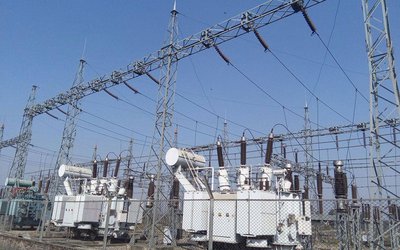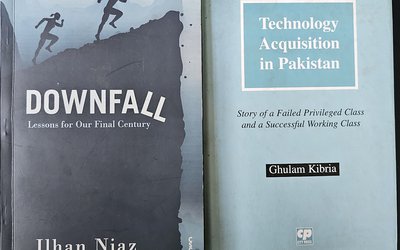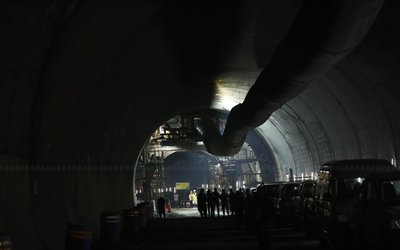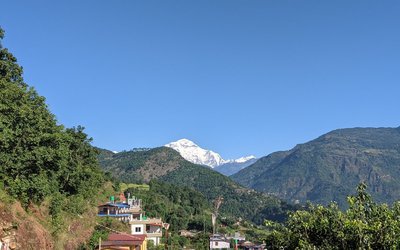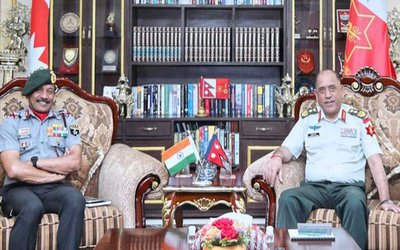It is almost certain that the constitution amendment bill registered and tabled in the House is not going to get through in its current form because neither the major opposition party CPN UML nor are the Madhesh-centric parties in favor of passing it. It is ironical that government failed to get the much expected support of the parties at whose insistence the proposal was registered in the Parliament. Looking little bit confused and disappointed, Prime Minister Dahal is heard and read expressing contradictory opinions occasionally. When the three major parties (NC, UML and Maoist Center) meet, he sounds determined to hold local level elections by mid-May, may what come, but he cannot stick on to these words for long because circumstances compel him into opining that no election would be announced without first taking the Madheshi and Tharu communities on board. Pressed hard by the disgruntled leaders of these communities, Dahal once went to the extent of suggesting that it was meaningless to declare election date without bringing to an agreement the agitating force, throwing buckets of cold water on K.P.Oli who may have been hoping that election dates would be announced soon. It was natural for Sher Bahadur Deuba and Oli to hope so after the tripartite meeting that ended conclusively, focusing basically on the election date. When we think about the situation that the ruling coalition is in currently, one does not feel like being hard on them because on the one hand they have to address the grievances of the agitators before announcing the poll dates on the other they too cannot ignore the constitutional deadline of holding all three tiers of elections by 21 January 2018.Caught in the unique predicament, Prachanda has been saying contradictory things and doing things that do not make much sense such as the recent induction into the cabinet of two ministers basically to garner support in favor of the tabled amendment bill. People do not approve of such an act at a time when they would like to believe that the bill has been put on the back burner. PM also did talk about introducing a supplementary proposal to the constitution amendment bill, which received positive response from the alliance of Madhesh-based parties and UML also does not seem against it because it has sought a detailed proposal. In the meeting of three major parties, Dahal was reported to have proposed omitting the provision through a supplementary proposal, of the chief and deputy chief of village councils and municipalities participating in the Electoral College to form the National Assembly.
It is difficult to say whether the poll dates will be announced soon or not, but with the Election Commission (EC) urging government to settle issues related to the elections, the government is left with no choice but to make necessary arrangements. It may be recalled that EC had stated little after mid-January that local elections will not happen in May-June if election-related issues are not settled within the next 10 days. The Commission wants the government to clear the election laws, implement the report of the local level restructuring commission and forge political consensus before the end of January. No one can say with certainty that political consensus will be achieved to organize polls as planned but as far as election-related laws are concerned some progress, although belatedly, has been achieved. The Bill to Amend and Integrate Laws Related to the Election Commission, the Bill Related to Voter’s List and the Bill on Election (Offence and Punishment) have received House approval and will come into effect after their authentication by the President. There is no harm in doing preparatory work needed but the task of getting Madhesh-based parties abroad election looks Herculean. Serious attention has to be given to the constitution-related demands of Madheshi leaders, taking into confidence the opposition parties, mainly UML.The government is also said to be contemplating ending the House session after endorsing election-related laws and putting the amendment proposal on hold. This may make one party in struggle(UML) happy as they have been opposing the idea of amendment ever since its introduction, but the other party across the fence(Madhesh-centric parties) are adamant about not participating in the polls without taking care of their concern. Government has to look for total solution and not partial solution because announcement of poll dates and ending House session will only further offend the other party in row, which has already issued ultimatum probably sensing some move by the government. It may be noted that Samyukta Loktantrik Madheshi Morcha has decided to hold mass demonstration at the headquarters of Tarai districts on February 5, basically to exert pressure on the government to implement the three-point agreement that led to the creation of current Dahal-led government. Deuba and Prachanda have to put the two parties in disagreement around the table and persuade them to backtrack a bit, keeping in mind that only a modified amendment proposal can pave way for a smooth implementation of the constitution. UML should be happy that the constitution amendment bill, opposed by them, is already in a state of limbo and Morcha leaders must not fail to realize that this never ending program of protest and agitation may do them more harm than good, politically. It is encouraging that Prachanda invited leaders of the Madhesh-based parties, after seeing Deuba and Oli, for a much awaited meeting along with representatives of NC. Expectedly, this meeting concluded inconclusively with disgruntled leaders present there threatening to sever ties if polls were announced without their consent. A sober leader like Mahanta Thakur is said to have warned leaders that a situation could be created in Madhesh where no state institutions other than army and police could function. Let us hope that this meeting is followed by several other meetings, which should include UML representatives as well.
Our Prime Minister will have to be assertive and at the same time refrain from declaring dates for doing something without adequate homework in such a politically fluid situation, which often impedes accomplishment of work on time. He has to understand that many a time he has failed to deliver the promised output by his self-imposed deadlines. He has to proceed with meaningful work on fronts, amendment and fixing of dates. Let us hope that the disgruntled leaders will not insist on constitutional amendment prior to everything else, if a timeline is given in a reliable way for amendment, which should also get the nod of UML. If Deuba and Prachanda work hard, this does not look unachievable .Morcha, which has also rejected the revised report of the local level restructuring commission, has to understand that the political path to be negotiated by political forces of this country is a delicate one and taking a step or two backward may avoid serious accident from happening. In the mean while, our leaders will have to prepare themselves for any kind of eventuality because the way out is not simple. In the event of leaders failing to come up with a modified proposal, they should be ready to put to referendum all the irresolvable issues, which could also include monarchy and Hindu religion. Faced with somewhat mutually exclusive demands of the parties in conflict, Prime Minister has neither been able to announce the poll dates nor has he been able to address the Morcha’s concern through an amendment to the constitution as promised in writing on August 3. We can simply pray and hope that our Prime Minister, despite being in neck-deep political problems, finds time to also think about the economy the external sector of which has not stopped showing dangerously alarming signs.
In the six months of this fiscal year, available data show import sky rocketing and export explaining only about 7 percent of our total trade. While import in these six months constitutes 92.8 percent of Nepal’s total trade, its share stood at89.8 percent in the six months of last fiscal year. Without increasing our production base at home, it will be difficult to arrest the deterioration in our external sector. We have to embark upon a gradual and steady program of first achieving self sufficiency and then be in a position to export some products. The government has to make sure that increase in paddy production by about 23 percent this year was not windfall, which can be shown if efforts are made to ascertain that similar increase takes place next year also. Luckily, inflation is not going to be a matter of serious concern this year because it is not likely to touch the double digit level as was the case for a long period of time in the past. Financial sector, however, is reported to have been facing liquidity crunch in recent times. Massive injection of liquidity by the central bank and increase in capital expenditure by government could help abate this problem of liquidity. Comparing capital expenditure during the six months of this and last fiscal year, it is seen that capital expenditure has increased a bit this year but is still far from satisfactory. Only 11.3 percent of the total allocation of Rs.311.95 billion has been spent in the first six months of the year. If the pace of executing development projects does not improve, government will have Rs.300 billion lying unspent by the end of this fiscal year. Currently, Nepal Government has more than Rs. 200 billion parked at the central bank and perplexing is the fact that the monetary authority has been advised to borrow for the government from the market. Even those knowing that this is not a new decision but a mere act of sticking to the long-drawn calendar, would have liked the decision to be postponed. This act of mopping liquidity (Rs.111 billion) would put further pressure on the market which has begun to experience the pain of rising interest rates. Current slackness in the share market is also attributed to competition amongst financial institutions to attract deposits by increasing interest rates.
It would be nice to conclude by sharing a piece of good news that Nepal will now be able to export power to Bangladesh via India as India is said to have agreed to allow the use of its territory for electricity trade, very much in the spirit of Power Trade Agreement signed by India and Nepal some two years ago. Those disappointed by the hydropower trade regulations recently made public by Government of India may derive some solace from this development. Let us work with our friends and neighbors so that exportable surplus in some sectors of the economy can be generated soon.

Dr. Tilak Rawal
Dr. Rawal is former governor of NRB.
- Prachanda Outsmarts Again
- Apr 14, 2024
- Prachanda Completes One Year
- Jan 26, 2024
- Terrible Times To Continue
- Oct 12, 2023
- Budgets Of Nepal
- Jun 09, 2023
- Moves And Counter Moves
- Feb 27, 2023





